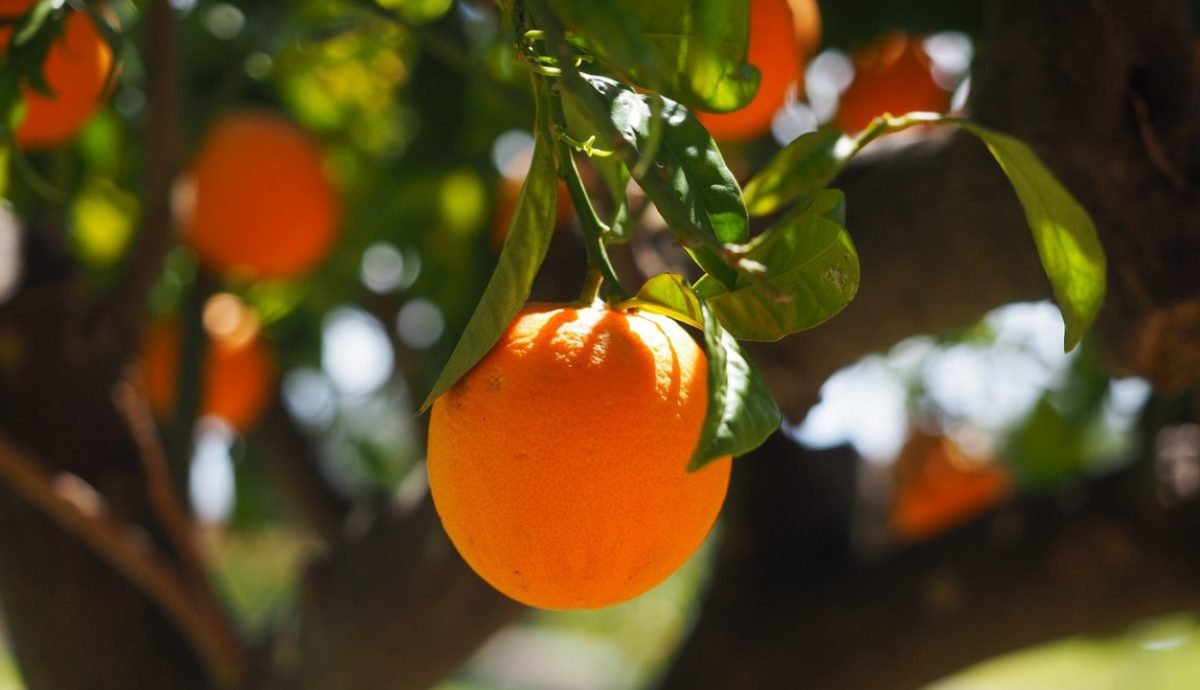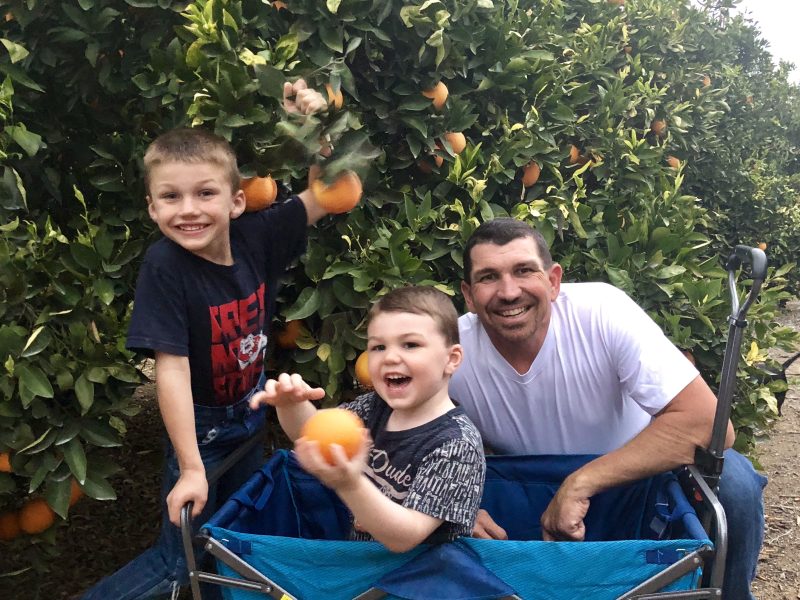How Do Oranges Grow?
Orange you curious?

How Do Oranges Grow?
We interviewed Ryan Hopper, a 3rd generation orange farmer from Ivanhoe, CA to find out!
1. Tell me about your operation.
Hopper Farms was started in the mid-1930s when my grandparents moved to California from Missouri. My grandfather, Don Hopper and his brother John "Hillary" Hopper first purchased the property with oranges and diversified into grapes, olives, and stone fruits. They continued to grow the operation and eventually phased out everything but the oranges by 1990. In 1999 I took over as primary farm manager.
Hopper Farms is comprised of 130 acres of citrus fruit. Our crop is composed of navel oranges, Valencia oranges, Blood oranges, mandarins, Cara Cara navels, and tangelos.
2. Why oranges?
Oranges love our cool winters and warm summers. This is the perfect climate for oranges!
We also have prime soil for growing a permanent tree crop. Citrus trees have a long productive life making them valuable for the grower.

3. What does it take to grow oranges? Do you use bees to help pollinate?
Oranges are self-pollinating and don’t need bees to produce fruit. To grow oranges we need sunlight, water, and good cultural practices such as fertilizers and pruning. Our trees also like about 30 days of 32 degree temperature to help maintain the firmness and freshness of the fruit. The cooler temperatures limit leaf growth aiding in the ripening and longevity of the fruit.
4.What kind of technology do you use to help your operation?
Autostart wind machines have helped our farm out tremendously. Prior to installing the autostart components, I would have to get up several times a night to check temperatures and start our wind machines for frost protection.
Now when the temperatures reach about 29 degrees, the machines turn on and will run until the ambient temperature in the orchard rises about freezing level - about 34 degrees. At that point the machines turn off, saving on fuel consumption and emissions. When the ambient temperature drops below the 29 degree threshold, the machines will turn back on protecting our crop. We use the wind machine in conjunction with irrigation to help keep the orchards warm. A second technology that has helped us is the use of fan-jet micro-sprinklers for irrigation. These sprinklers allow us to control the amount of water we are using on the crop and prevent over watering.
5. How do you know when an orange is ripe?
Typically our varieties mature at the same time every year. For example, we know that our Cara Cara Oranges are usually ready to be picked about the first week January. Close to that time, our packing house will send out their field men to test our blocks of fruit when they have an order to fill. Our field men will then test the sugar and acid content of the fruit, check size, and color and determine when they are going to pick a certain block. Once a block is mature and an order needs to be filled by our packing house, a picking crew will come out and harvest the trees by hand. Citrus has a longer window for harvest than other fruits which have to be picked at their prime. Oranges do not need to be picked just because they are orange. Then can hold on the tree for quite a while.
.jpg)
6. What is the difference between oranges for juice and fresh fruit oranges?
Oranges that are juiced are the pieces of fruit that are cosmetically inferior. The goal of most famers is to pick all fruit for fresh consumption; however fruit with too many blemishes and defects will be sorted out at the packing house and sent to juice.
7. Final question: What’s your preference pulp or no pulp?
Pulp 
Still curious about citrus?
Read: From Oranges to Orange Juice
Watch: America's Heartland from Tree to Table
Learn: A "Sour" Subject from the National Ag in the Classroom Curriculum Matrix









